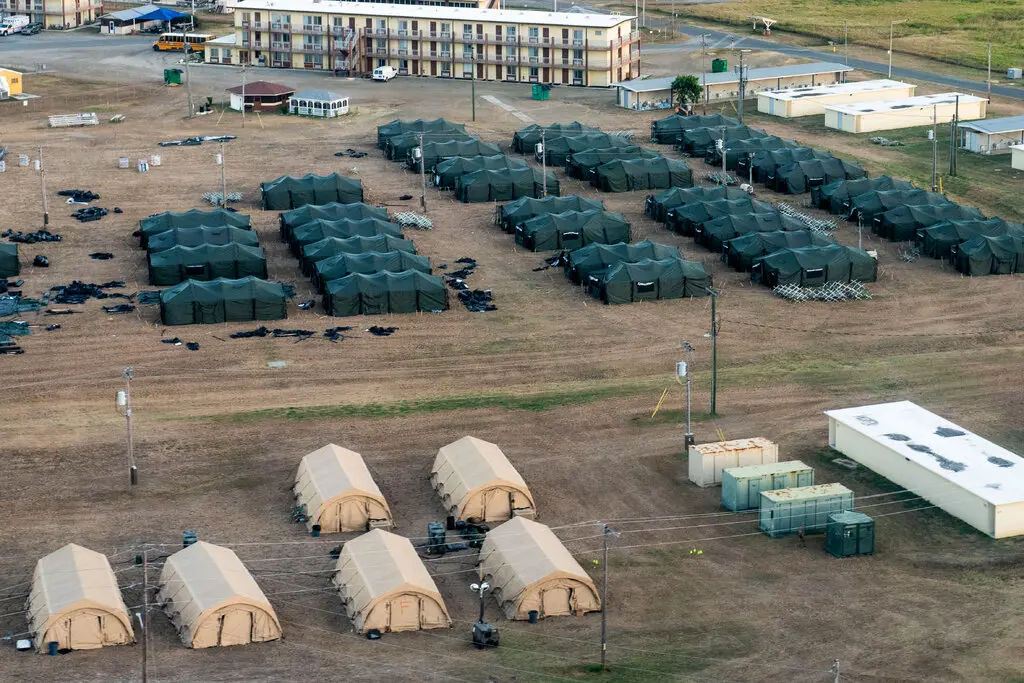A federal judge has stopped the US government from transferring three Venezuelan migrants to Guantánamo Bay, Cuba. The ruling came after lawyers for the men, who are being held at an Immigration and Customs Enforcement (ICE) facility in New Mexico, requested an emergency order to prevent their transfer.
The request was made on Sunday, and within an hour, Judge Kenneth J. Gonzales of the Federal District Court for New Mexico held a videoconference hearing and verbally granted the restraining order. Baher Azmy, legal director of the Center for Constitutional Rights, confirmed the decision.
The Trump administration recently introduced a policy of sending undocumented migrants to Guantánamo, but human rights groups have struggled to challenge it due to a lack of information on those affected. However, the three Venezuelan men already had legal representation and feared they would be among those transferred.
According to their court filing, they are detained at the Otero County Processing Center, where other migrants sent to Guantánamo were previously held. The men recognized some of those detainees from media-released government photos and heard rumors that more transfers were planned. They also claimed they matched the administration’s profile of Venezuelan men accused—without evidence—of links to the Tren de Aragua gang.
On January 29, President Trump ordered Homeland Security and the Defense Department to expand a migrant facility at Guantánamo Bay to detain what he called “high-priority criminal aliens.” Since then, five military flights have taken migrants to Guantánamo, where they are housed in an empty section of a prison built after 9/11 to hold terrorism suspects.
This legal challenge focuses only on stopping the transfer of the three men, rather than blocking the overall policy. Government lawyers said the men were not being moved to Guantánamo, but their legal team argued that their status could change at any time.
For years, the US has taken migrants intercepted at sea to Guantánamo for processing. However, moving people already on US soil—where they are protected by constitutional rights—to Cuban territory raises legal concerns. The Supreme Court has ruled that Guantánamo can be used to detain Al Qaeda suspects, but it is unclear whether the Trump administration has the legal authority to detain migrants there.
The men are facing removal orders after their asylum claims were denied. However, they have not been deported due to strained relations between the US and Venezuela under President Nicolás Maduro. Their lawsuit argues that they cannot be held indefinitely and should be released. They also say that moving them to Guantánamo would make it harder to communicate with their lawyers and could weaken their legal case.

